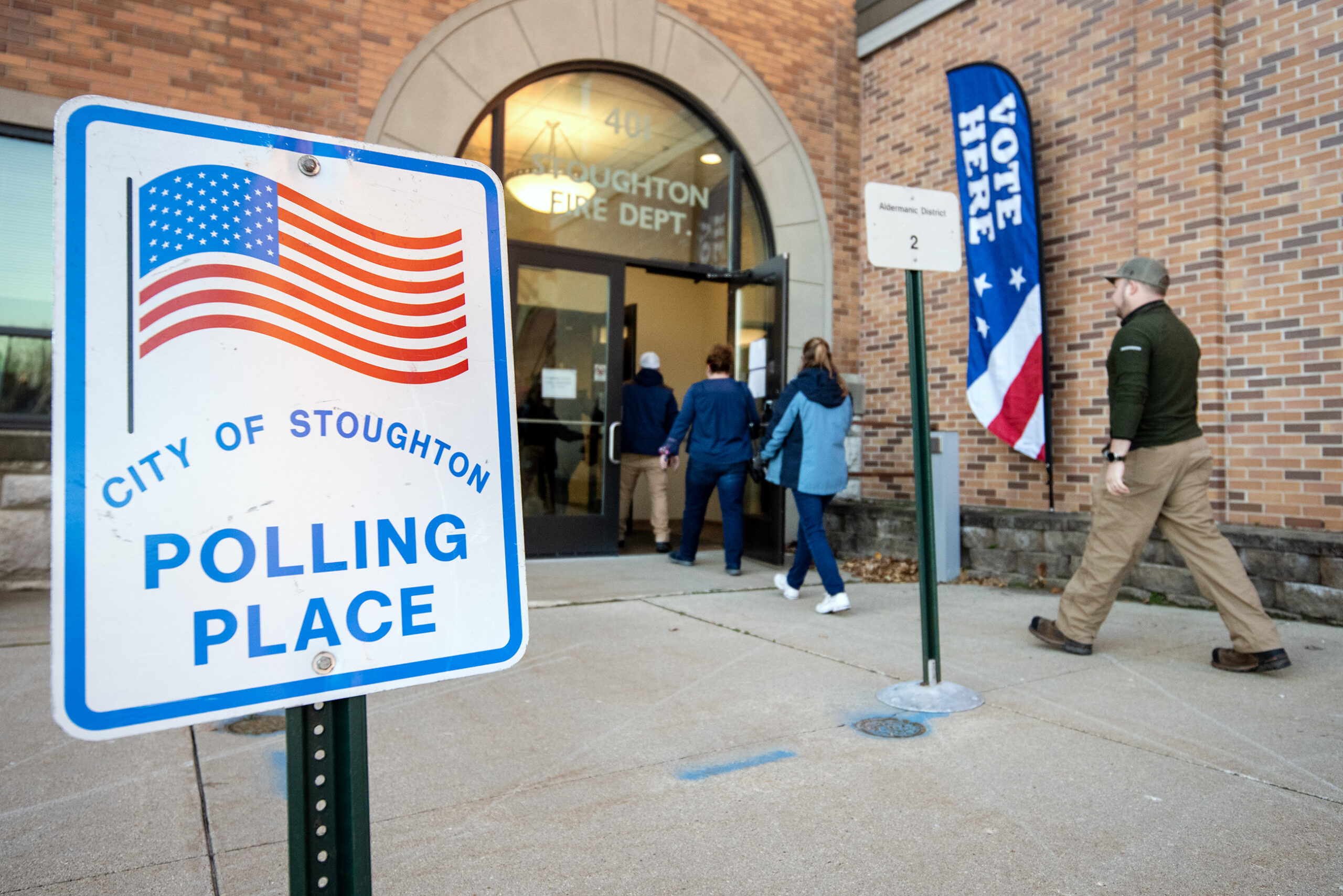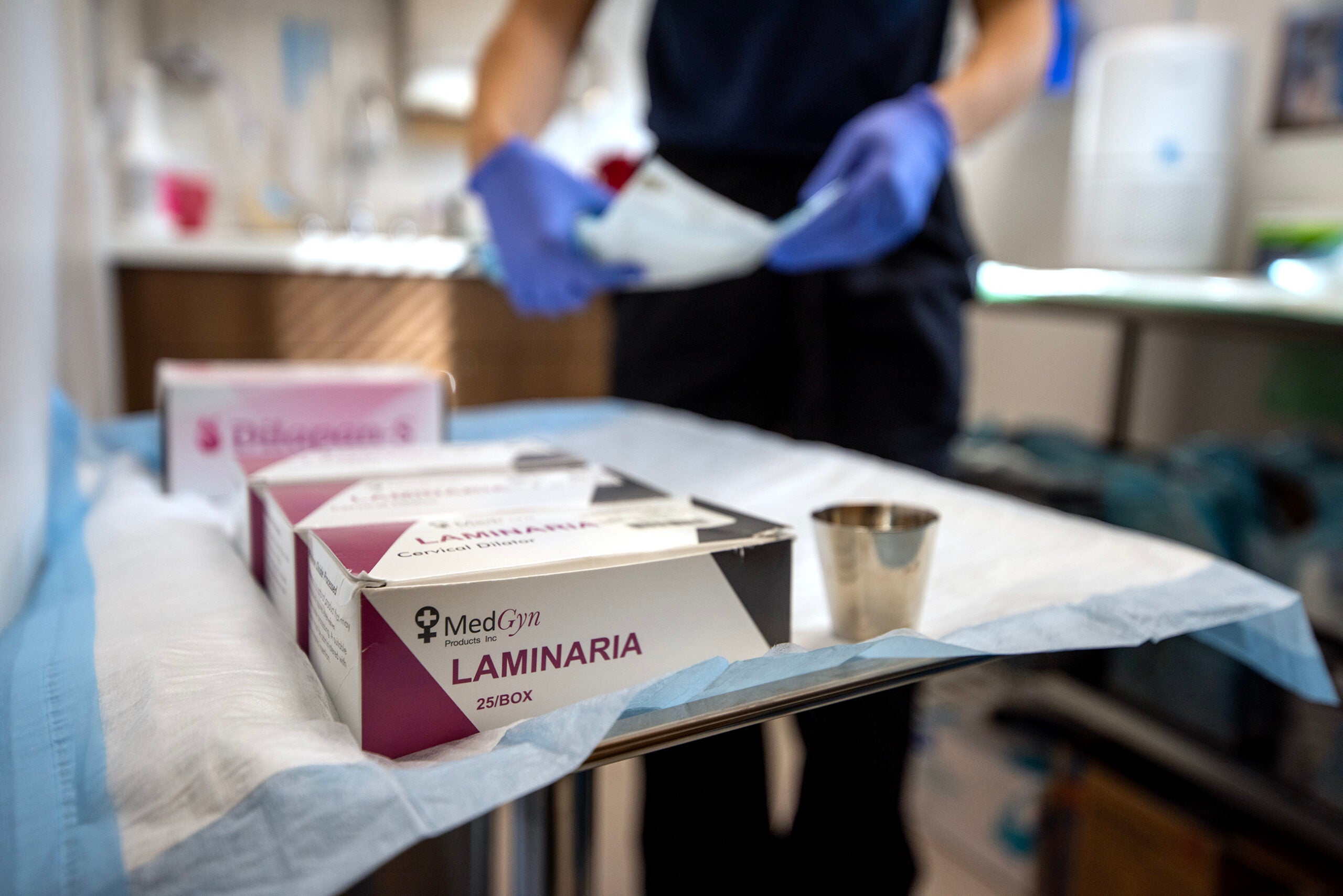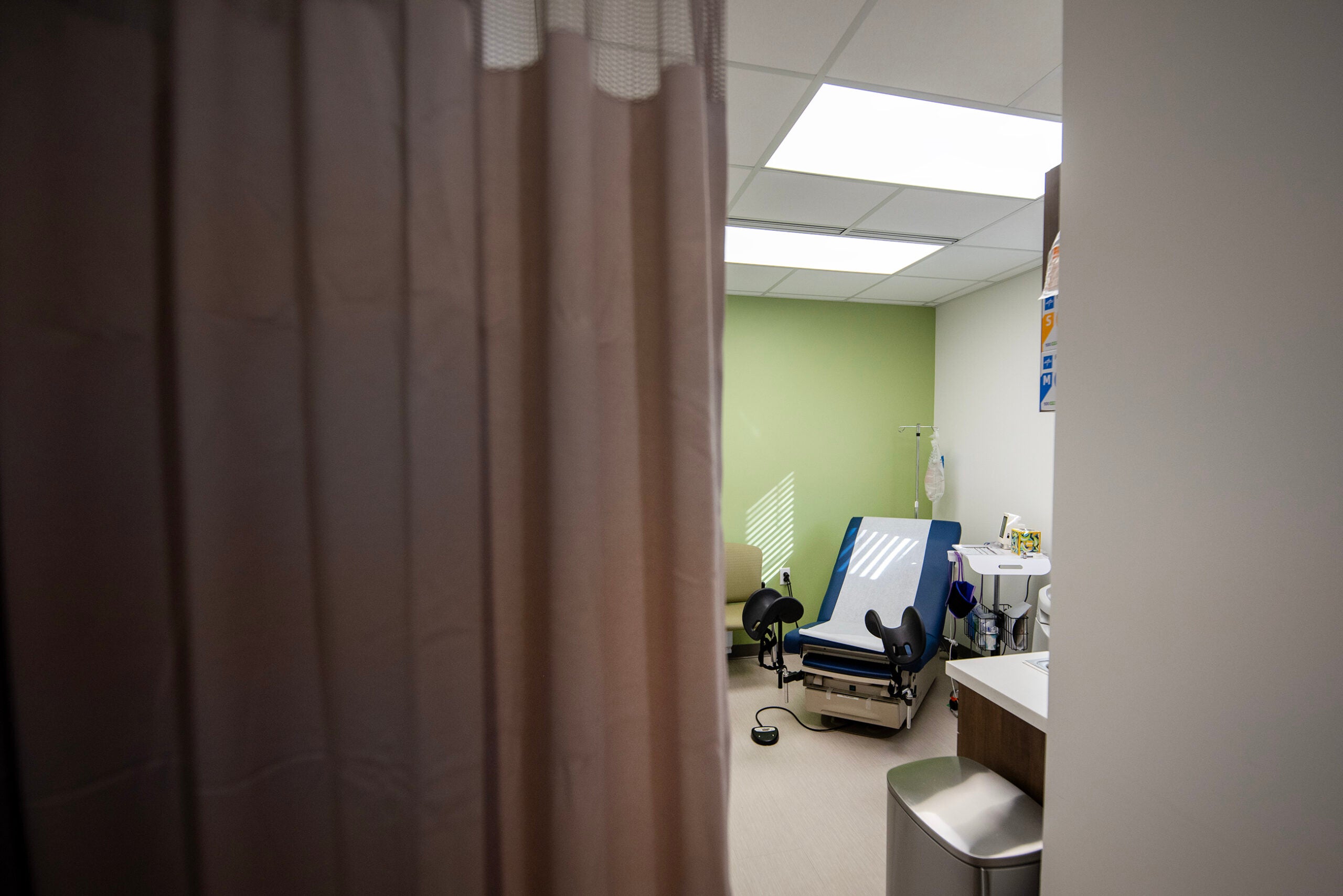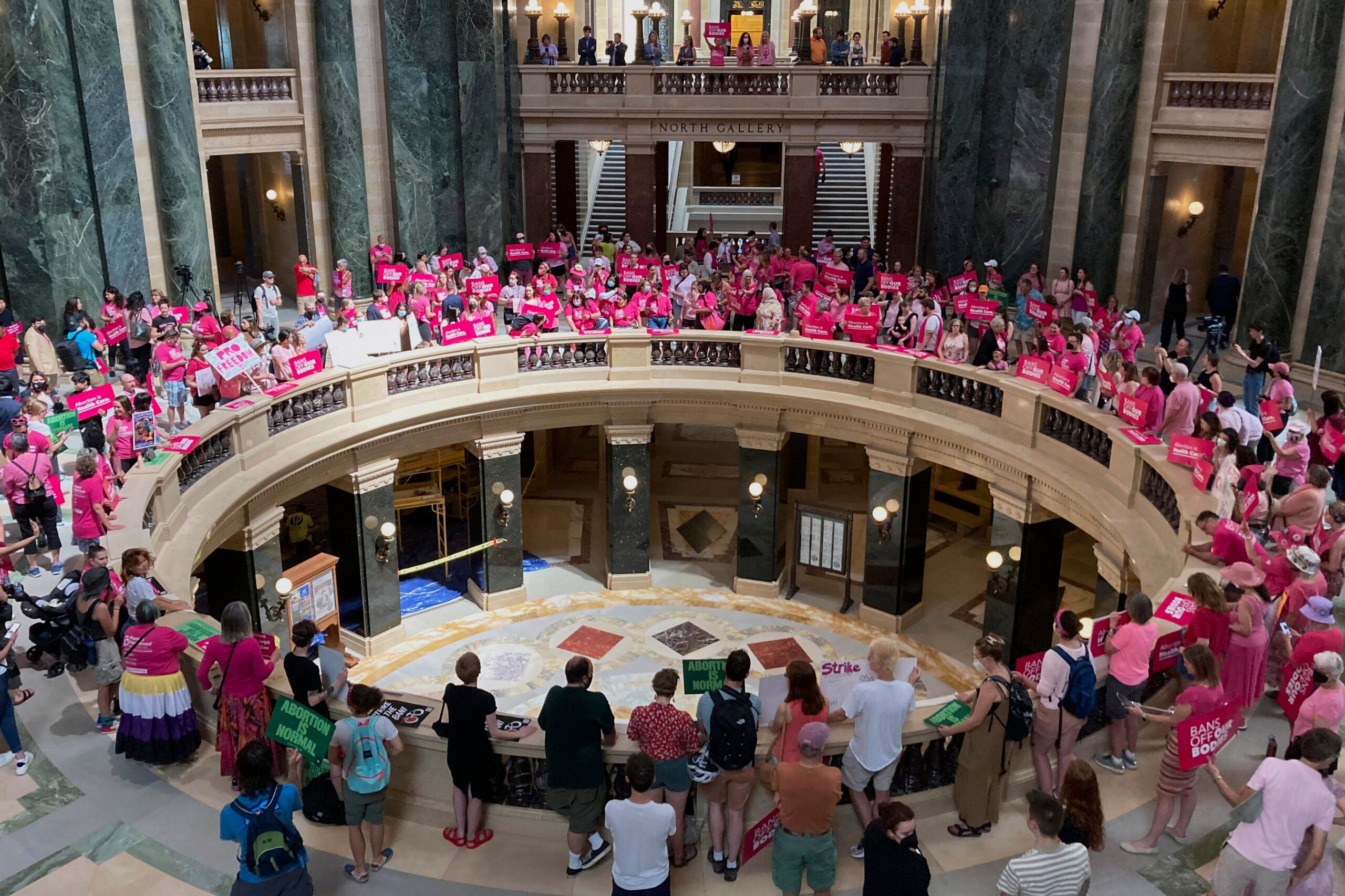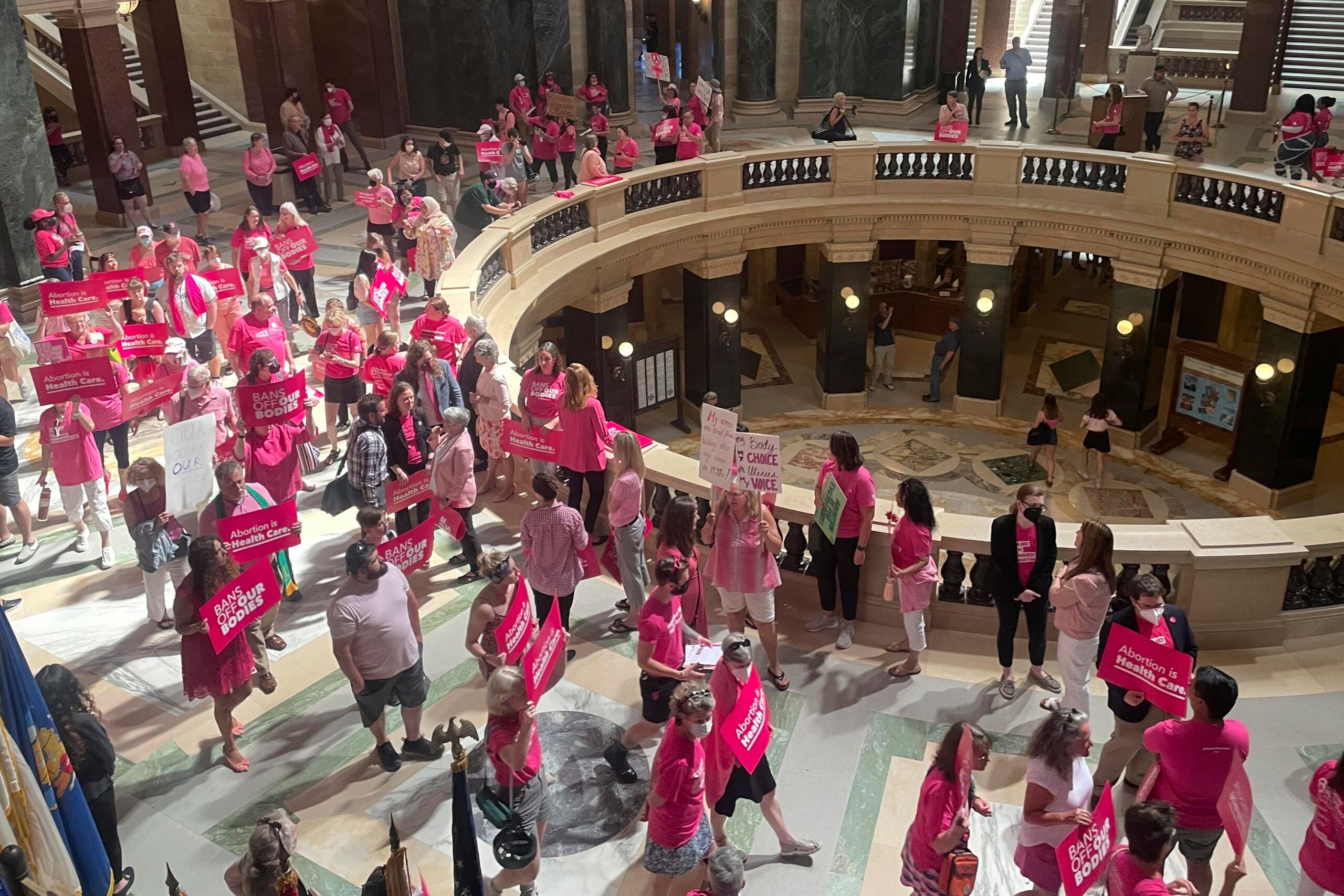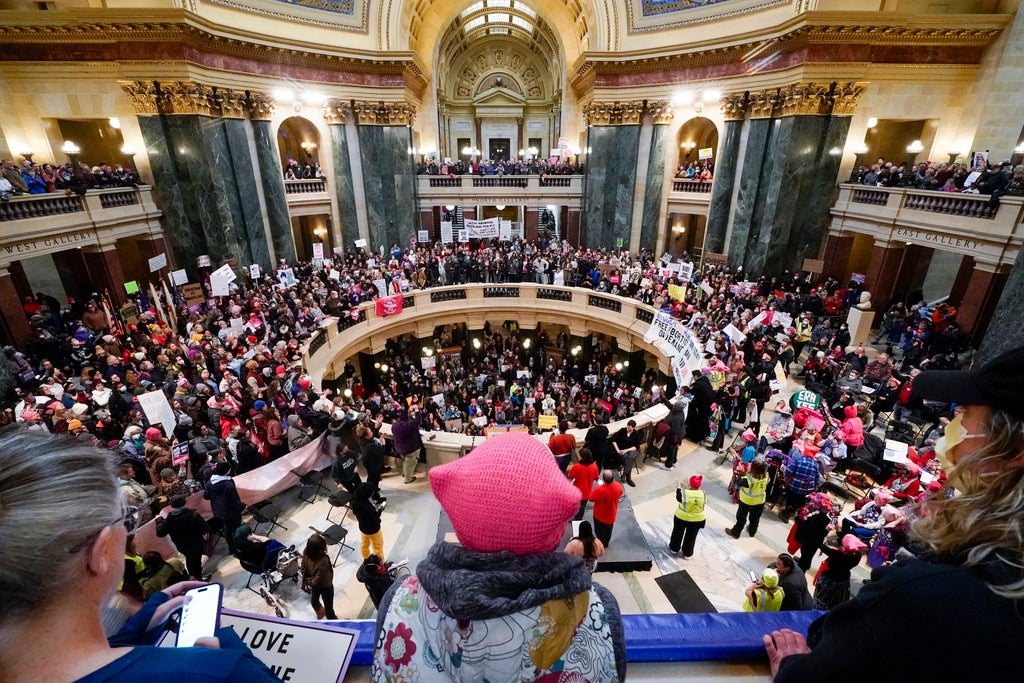In a series of advisory referendums Tuesday, residents in several Wisconsin communities voted overwhelmingly in support of repealing the state’s abortion ban and for the legalization of marijuana.
In Dane County, 85 percent of voters said they wanted the state to repeal its 1849 abortion ban, while 71 percent of Racine residents voted yes on a similar non-binding referendum, according to unofficial election results. It’s another indicator of Wisconsinites’ views on the issue, as national polls show the majority of Americans want abortion to be legal.
Meanwhile, 81 percent of Dane County voters and 74 percent of Milwaukee County voters said marijuana should be legalized and regulated across the state.
News with a little more humanity
WPR’s “Wisconsin Today” newsletter keeps you connected to the state you love without feeling overwhelmed. No paywall. No agenda. No corporate filter.
Election results from eight Wisconsin cities and counties showed similar numbers for legalization through advisory referendums in their communities, including in more rural areas in the state, showing support for marijuana legalization is rising in popularity.
Voters want state to repeal 1849 abortion ban
Abortion access was top of mind for many voters across Wisconsin Tuesday, but voters in the city of Racine and Dane County had the opportunity to tell state lawmakers through the ballot box whether they think Wisconsin’s abortion ban — which makes the procedure a felony in most cases — should be repealed.
Wisconsin adopted statutes in 1849 and 1858 banning doctors from performing abortions unless the pregnant person’s life is in danger. The U.S. Supreme Court’s landmark Roe v. Wade decision in 1973 invalidated the ban. But the court’s decision in June to reverse Roe put Wisconsin’s 19th century ban back into effect.
Since then, abortion has been a key issue for many Wisconsin voters, and political candidates have discussed their views on abortion policy throughout their campaigns.
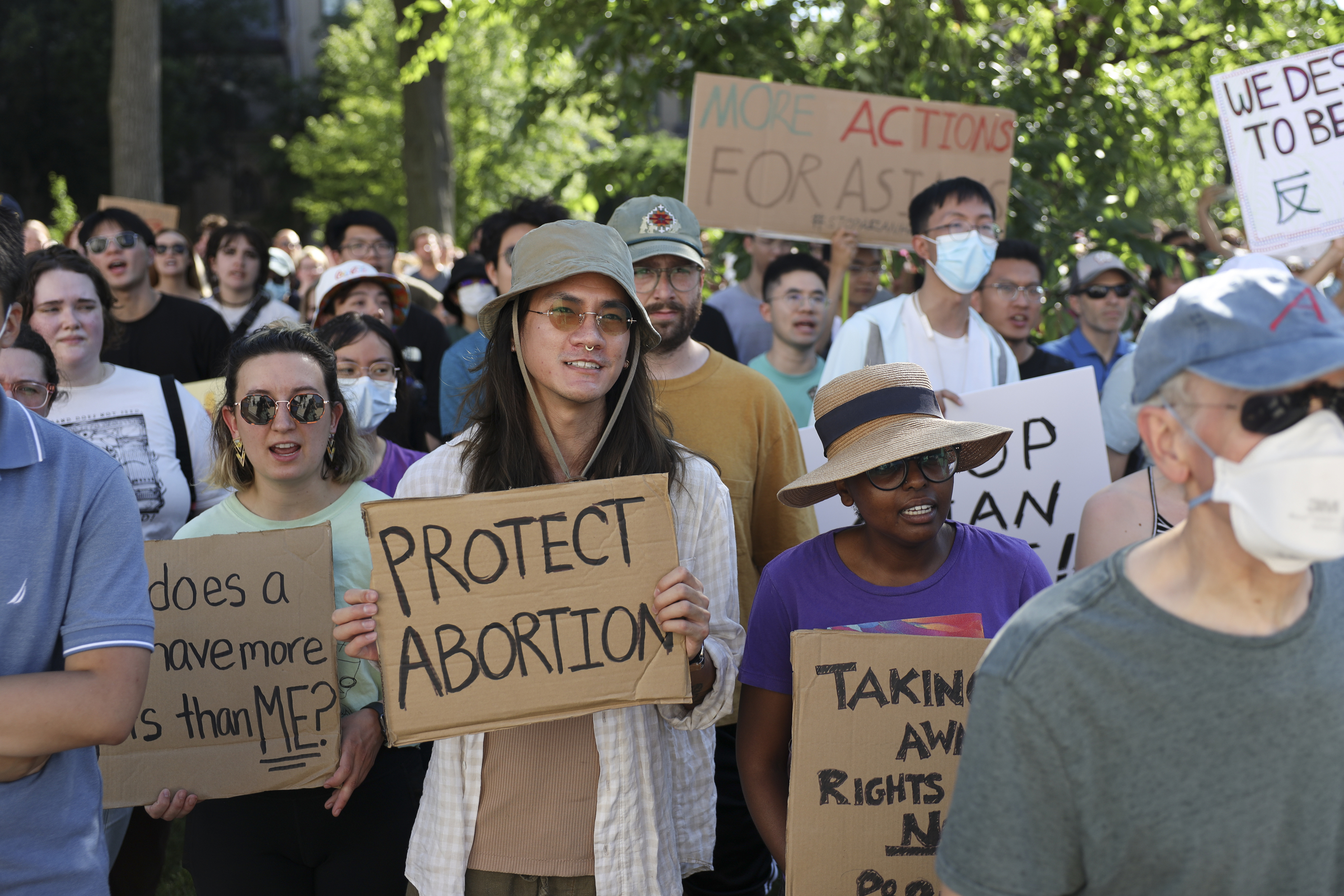
In August, the Racine City Council unanimously approved a resolution to put the advisory referendum on the ballot Tuesday. Racine City Council member Natalia Taft proposed the idea for the referendum, saying it was a way to let state lawmakers know how local residents felt about the issue. Dane County also approved a referendum in July with a simitar goal in mind.
Legislative bodies can use non-binding referendums on the ballot to “gauge the opinion of the electorate,” according to a Wisconsin Legislative Reference Bureau report.
Taft told Wisconsin Public Radio in August that she was confident the majority of Racine voters would vote yes on the referendum.
She was right.
The referendum results were in line with polling on Wisconsinites views on abortion access. A Marquette University Law School national poll in January found 72 percent of those polled were opposed to overturning Roe v. Wade. A recent Marquette poll found 52 percent of Wisconsinites were “very concerned” about abortion policy as well.
Mike Murray, vice president of public affairs for Planned Parenthood of Wisconsin, said he was also encouraged that Democratic Gov. Tony Evers and Attorney General Josh Kaul won their bids for reelection Tuesday. Evers and Kaul have both attempted to block the state’s ban on abortions and provide safe access for abortions for Wisconsin residents.
“I think the results of last night were a resounding victory,” Murray said. “I think they were an incredibly important step in the right direction for reproductive freedom in the state of Wisconsin, but we should also know that there’s a lot of work left ahead of us.”
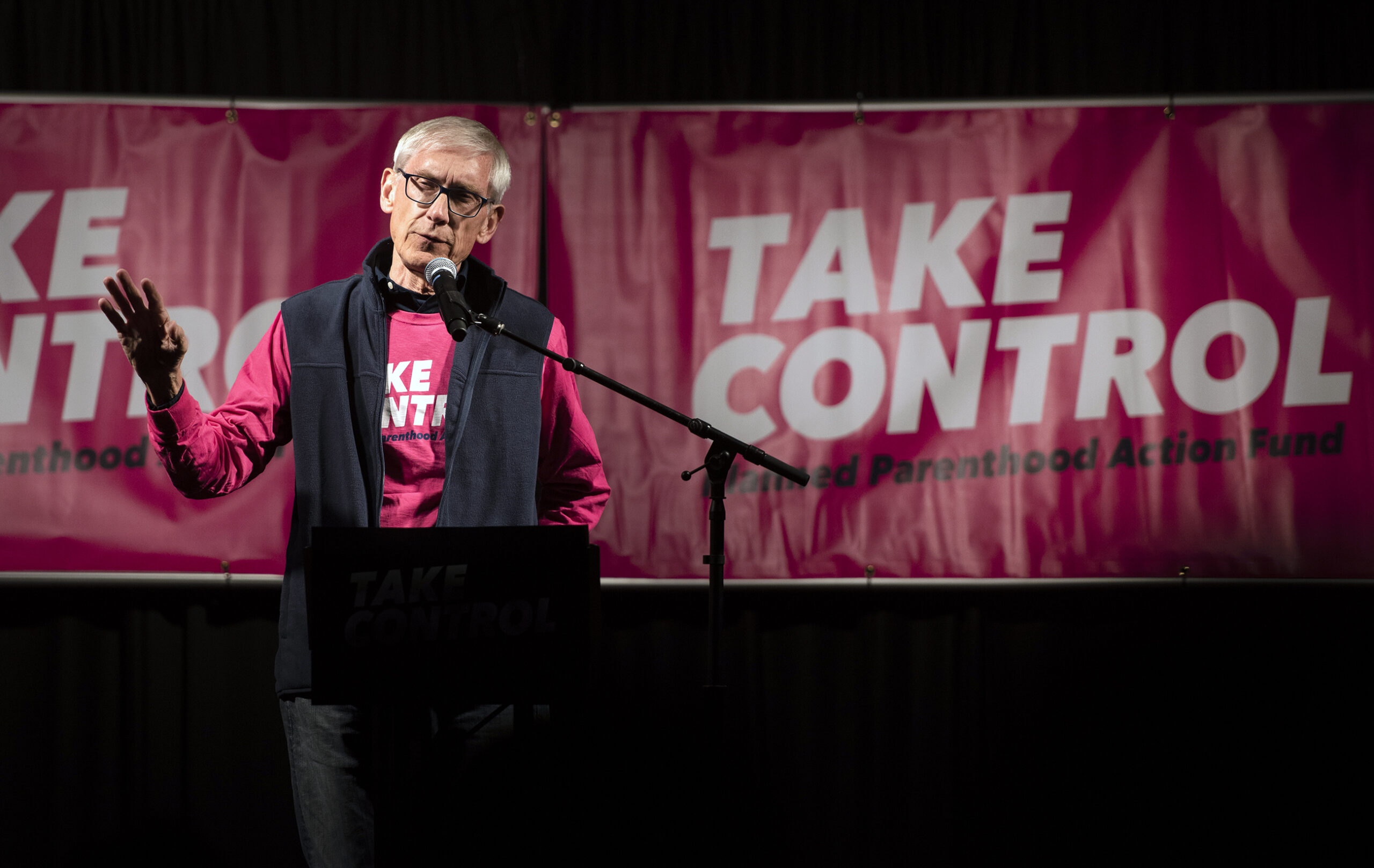
Murray said he had hoped a statewide referendum or ballot measure regarding abortion would have been on the ballot, but he was still happy with the results of the local referendums.
“It was incredibly encouraging to see,” Murray said. “When voters have had the opportunity to actually express their thoughts and their values around reproductive freedom, they have voted overwhelmingly to say that they want the women in their communities to have access to comprehensive, reproductive health care, including abortion.”
But it’s not yet clear if the referendums will have an impact on what happens with the issue statewide.
Barry Burden, a political science professor at the University of Wisconsin-Madison, said lawmakers should already know that the majority of voters favor abortion being legal in Wisconsin because of state and national polls.
“I think there’s a real disconnect between the opinions of voters in the state and the output of the legislature,” Burden said. “I think that’s frustrated a number of voters and groups around the state, who have turned to these advisory referendums, hoping they would send a signal to the state legislature.”
There were binding referendums on abortion access on the ballot in some states Tuesday, as voters in California, Michigan and Vermont voted to enshrine access to abortion in their state constitutions through ballot measures, according to CBS News.
Voters in Kentucky also rejected a ballot proposal Tuesday which would have amended the state constitution to say it does not protect a right to abortion.
Voters call on state to decriminalize marijuana
Advisory referendums related to the legalization and regulation of marijuana have been on the ballot in Wisconsin in several municipalities in recent elections. On Tuesday, Appleton, Racine, Kenosha, Stevens Point, Superior, Dane County, Milwaukee County and Eau Claire County all had non-binding referendums related to the sale and possession of the drug.
Many statewide activists and experts have called for the legalization of marijuana, as racial disparities persist in convictions for possession. A 2021 report from the Milwaukee County District Attorney’s Office found in 2019, Black Wisconsinites were 4.3 times more likely than their white counterparts to be convicted for having marijuana.
The disparities in Wisconsin are in Ozaukee County, where Black people are 34.9 times more likely to be arrested, and Manitowoc County, where Black people are 29.9 times more likely to be arrested, according to data from the American Civil Liberties Union.
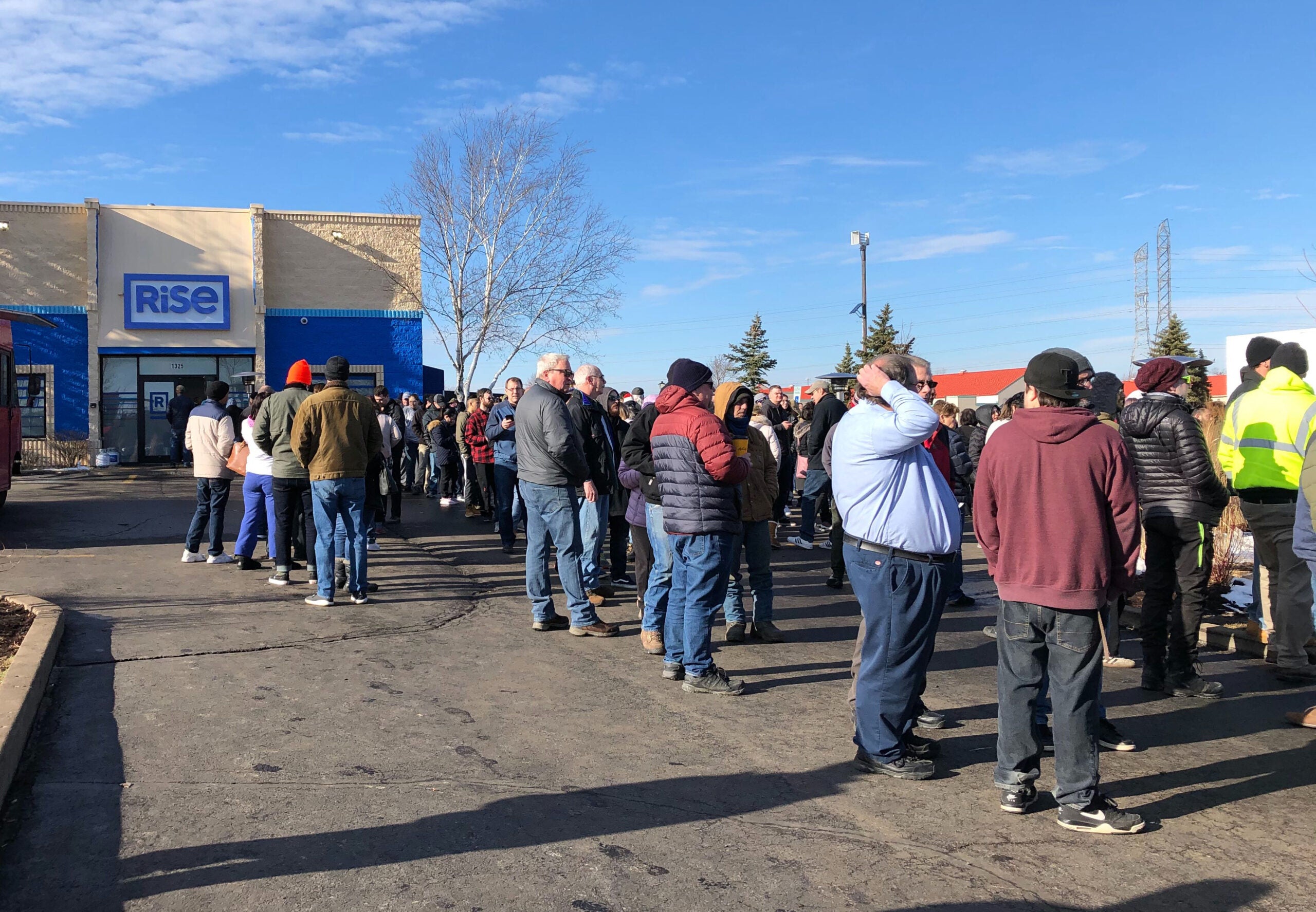
Jay Selthofner, the founder and director of the Wisconsin Cannabis Activist Network, said he was “very encouraged” by the results of the advisory referendums Tuesday.
“It’s not surprising to see that they passed by a strong amount of support,” Selthofner said.
A recent Marquette University Law School poll found that 64 percent of Wisconsinites support the legalization of marijuana. That mirrors a 2021 Gallup poll which found 68 percent of Americans favor legalization.
While three states approved ballot measures to legalize recreational marijuana Tuesday night, the path to legalization in Wisconsin has been hotly contested in recent years. Republican leadership in the state legislature has also been opposed to the legalization of recreational marijuana, even as Evers has proposed plans for legalization.
That’s discouraging to Selthofner, who said recreational legalization would have many financial and medical benefits for residents of the state.
“If we did have a binding, statewide referendum, we feel very confident that Wisconsin would have medical marijuana, or would have had medical marijuana a long time ago,” he said.
“We probably would be well on our way to recreational, or adult use marijuana as well,” Selthofner added.
But some municipalities across the state have taken the issue into their own hands, including in Milwaukee County, which dropped fines for possession down to $1.
“If local leaders are responsive to what their local citizens say, then we should see a huge amount of movement on the local decriminalization end, through either a city or county initiative,” Selthofner said.
Wisconsin Public Radio, © Copyright 2025, Board of Regents of the University of Wisconsin System and Wisconsin Educational Communications Board.

